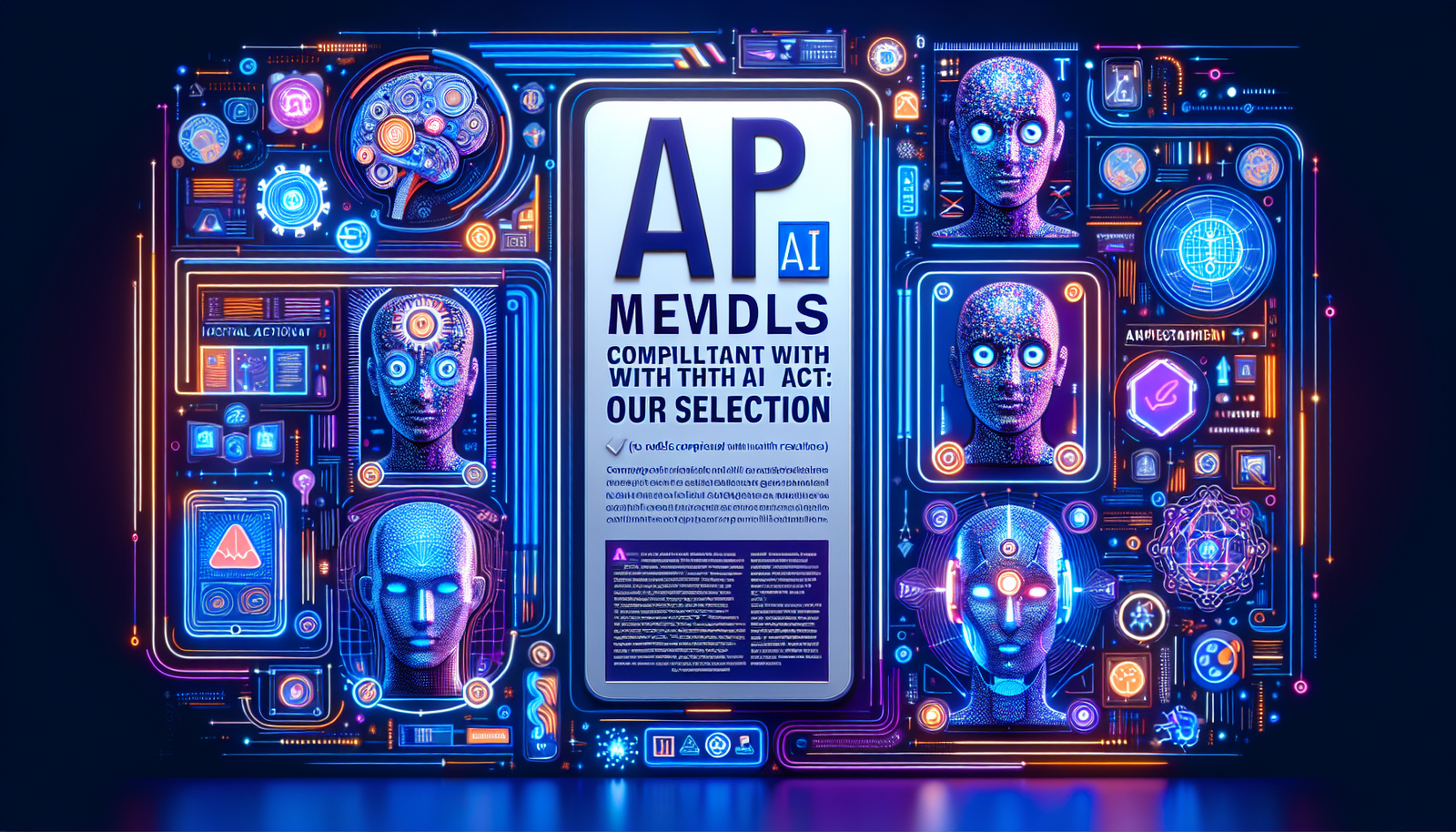The emergence of artificial intelligence marks an unprecedented evolution across various sectors. Each innovation comes with a necessity for ethics and compliance, particularly with the implementation of the AI Act. The challenges posed by these technologies require a rigorous selection of compliant solutions. These intellectual vehicles, in addition to being advanced, must respect precise standards to ensure responsible and beneficial use. Compliance with the AI Act becomes a central issue for any company wishing to navigate effectively in this new digital era.
Recent regulatory developments in the field of artificial intelligence (AI) have sparked significant interest. The AI Act, introduced by the European Union, establishes a precise framework to ensure compliance and security of AI systems. Many companies are working hard to meet these standards. Here is a selection of artificial intelligences that meet the requirements of the AI Act.
Anthropic and its AI assistant
Anthropic recently launched an innovative AI assistant that fully aligns with the guidelines of the AI Act. This technology emphasizes the ethical and responsible use of user data. The capabilities of this assistant go beyond simple interactions, including enhanced data protection mechanisms.
An intelligent communication is promised by this tool, which offers a simplified interface while adhering to the safety standards imposed by the AI Act. Anthropic’s developers strive to ensure transparency in the handling of information.
OpenAI and its advanced models
OpenAI, with models like ChatGPT, establishes itself as a prominent player in the market. The company has integrated compliance measures into its systems, thus ensuring security and transparency. These models do not just produce text; they adapt to users while adhering to current laws.
Frequent updates bring substantial improvements to performance. OpenAI is committed to anticipating regulatory needs through the implementation of adequate controls ensuring responsible use of AI.
The innovations of Microsoft
Microsoft, through its virtual assistant Copilot, demonstrates exemplary compliance with the principles of the AI Act. This artificial intelligence integrated into various Microsoft products offers a seamless user experience while respecting regulatory guidelines.
The features of Copilot are designed to maximize accessibility while preventing potential misuse. Microsoft has invested in verification tools to ensure that this AI remains secure for everyone.
The impact of artificial intelligences on the market
These technologies promise a radical transformation across various sectors, particularly e-commerce and financial services. Companies that adopt AI compliant with the AI Act benefit from increased trust from consumers. By ensuring transparency and security, these user-centered approaches represent a significant asset.
Social responsibility and ethics
Compliance with the AI Act is not limited to technical aspects. It also involves corporate social responsibility. Market players must demonstrate transparency in their use of data and ethics in the deployment of AI.
Towards a secure and collaborative future
AI systems compliant with the AI Act pave the way for a future where security and innovation coexist harmoniously. Collaboration between regulators and companies is essential to ensure that these technologies benefit society as a whole. Initiatives like those of Microsoft and OpenAI embody this vision of a future where AI operates within a solid legal framework.
A robust legal framework ensures that the promises of AI are fulfilled without compromising ethics or the security of users. Companies must prepare for this transition, anticipating upcoming regulatory challenges.
More information about the launch of Anthropic’s assistant can be found here. Elements regarding AI regulation in Brussels are available here. The issues surrounding super-intelligences are explored there, while reflections on human intelligence in the face of AI can be accessed here, and the vision of the future concerning super-AIs is detailed at this location.
Frequently Asked Questions
What is the importance of the AI Act for artificial intelligence solutions?
The AI Act defines strict standards and regulations for the use of artificial intelligence technologies within the European Union, ensuring transparency, security, and compliance of AI systems.
What types of artificial intelligences are covered by the AI Act?
The AI Act primarily applies to AI systems deemed high-risk, including those used in health, transportation, and critical infrastructure, as well as applications intended for specific uses.
How can companies verify their AI’s compliance with the AI Act?
Companies can use compliance verification tools that help them assess whether their AI systems meet the requirements outlined in the AI Act, particularly regarding documentation and testing.
Are there sanctions for non-compliance with the AI Act?
Yes, severe penalties can be imposed, including substantial fines and restrictions on the use of AI systems, highlighting the importance of compliance for companies.
What are the best practices to ensure my AI is compliant with the AI Act?
Best practices include conducting regular risk assessments, establishing transparency and audit protocols, and maintaining up-to-date technical documentation.
How does the AI Act influence innovation in the field of artificial intelligence?
The AI Act aims to promote a responsible approach to innovation by establishing ethical standards, which can help build public and business trust in new AI technologies.
Which AI tools or solutions are considered compliant with the AI Act?
AI solutions designed with compliance features from the start, including control and reporting mechanisms, as well as those that have undergone compliance audits, are deemed compliant with the AI Act.
Which sectors benefit most from the AI Act in relation to the use of artificial intelligences?
Sectors such as health, transportation, financial services, and education will particularly benefit, as the AI Act ensures that the AI systems used in these areas maintain safety and ethics.
How does the AI Act address ethical concerns related to artificial intelligence?
The AI Act establishes clear ethical principles, such as non-discrimination, data protection, and developer accountability, thereby contributing to a more ethical and respectful use of AI technologies.






